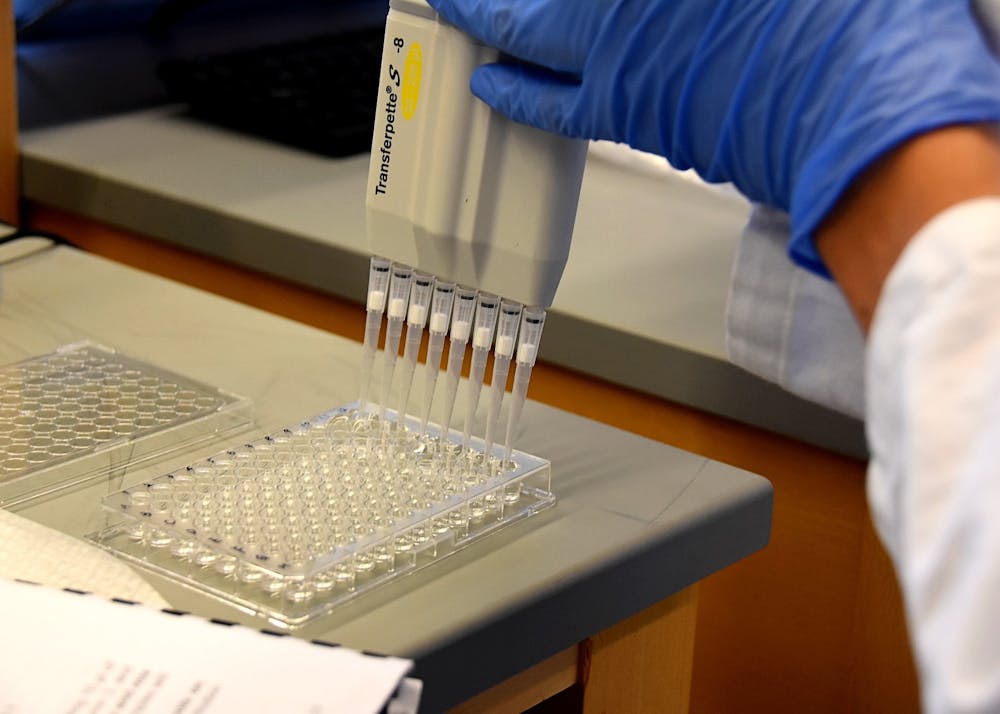This fall, Penn’s Bioengineering Department in the School of Engineering and Applied Science implemented a new Applicant-Support Program designed to help Ph.D. applicants from underserved and underrepresented communities navigate the Ph.D. application process.
The support program will pair each applicant with a current bioengineering Ph.D. candidate who will offer guidance and clarifying information throughout the application process. The program saw 72 applicants this semester, according to Graduate Group Chair for Penn’s Department of Bioengineering Yale Cohen.
“The idea was to match applicants with current students so they could have a buddy system, match students based on scientific, engineering interests so they have someone to talk to and say, ‘Hey, what do you think of this lab? What do you think of this other lab? What should I expect when I’m interviewing?" Cohen said.
Dayo Adetu, co-president of GABE and candidate for dual master’s degrees in bioengineering and mechanical engineering, added that the support program will provide further support for those who may have had disadvantaged resources in the past.
“[The program is] available to everyone. However, by surveying students in the past, we’ve realized that it would be helpful for people who do not have that support system where they come from to have that extra support,” Adetu said.
GABE co-president and fourth-year bioengineering Ph.D. candidate Jason Andrechak said that insight from people who have already experienced Ph.D. programs can be crucial to submitting a successful application.
“A lot of what a successful application looks like at this level is just knowing what a successful application looks like,” Andrechak said. He hopes the program will help ensure that a lack of prior access to people who have already become Ph.D. students does not disadvantage future applicants.
The Bioengineering Department is one of two departments in Engineering to implement this support program, according to Andrechak. Cohen first suggested the program to GABE after learning about its implementation in the school's Computer and Informational Sciences Department.
RELATED:
Engineering Dean’s Advisory Board will launch challenge to tackle environmental issues
Penn Engineering receives record $25 million donation for new data science building
“I think what our goal is as GABE, as a facilitator of the department, is to encourage other departments to adopt the policy that we’ve implemented,” Adetu said.
GABE is also pursuing additional policies to make Penn Bioengineering more inclusive for students.
The department recently eliminated its requirement for Ph.D. applicants to submit GRE scores. According to Cohen, GRE scores are hardly correlated with students' GPAs or overall success in Penn Bioengineering graduate programs.
“There’s no point to having people take a biased exam when it has no predictive power,” Cohen said.
This decision received pushback from other graduate groups and admissions committees in the Engineering School, according to Andrechak. Other departments argued that GRE scores were necessary metrics of students' potential for academic success.
“I think there’s a lot of resistance in the academic bureaucratic structure to change things, especially at the Ph.D. level,” Andrechak said.
But Andrechak also noted the collaborative relationship between his department and others.
"We learn best practices from them and we model them for bioengineering, and hopefully, other graduate groups can learn from us in the same way that we learn from them," Andrechak said.
Both Adetu and Andrechak acknowledged Cohen as a faculty member who has listened closely to student input and who has been committed to supporting underrepresented students. Both students agreed that efforts to admit students from underserved or underrepresented communities are ongoing.
"We're working on policies and structures to put in place that support those students while they're here," Andrechak said.









